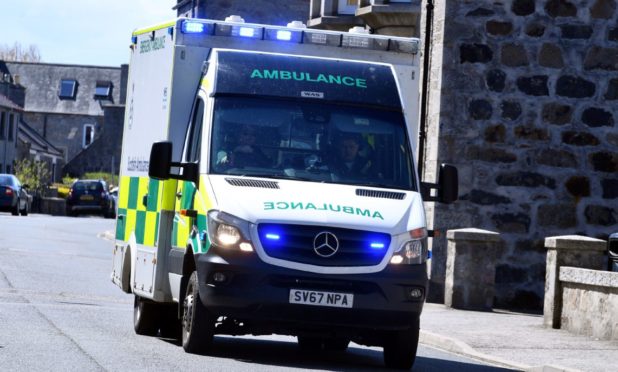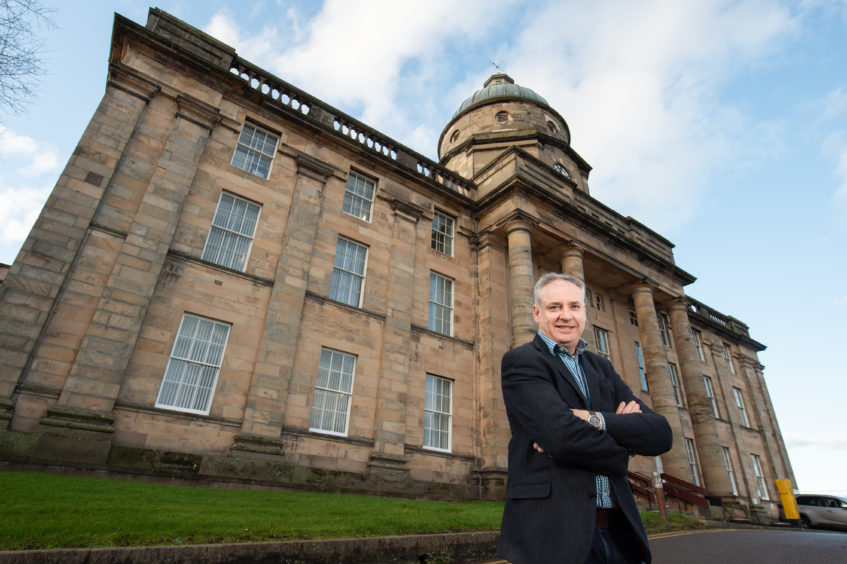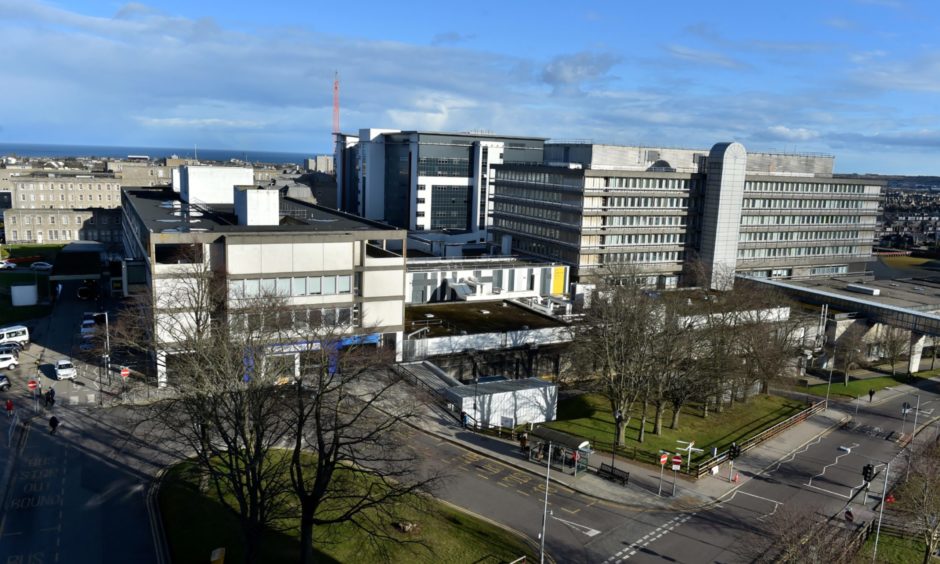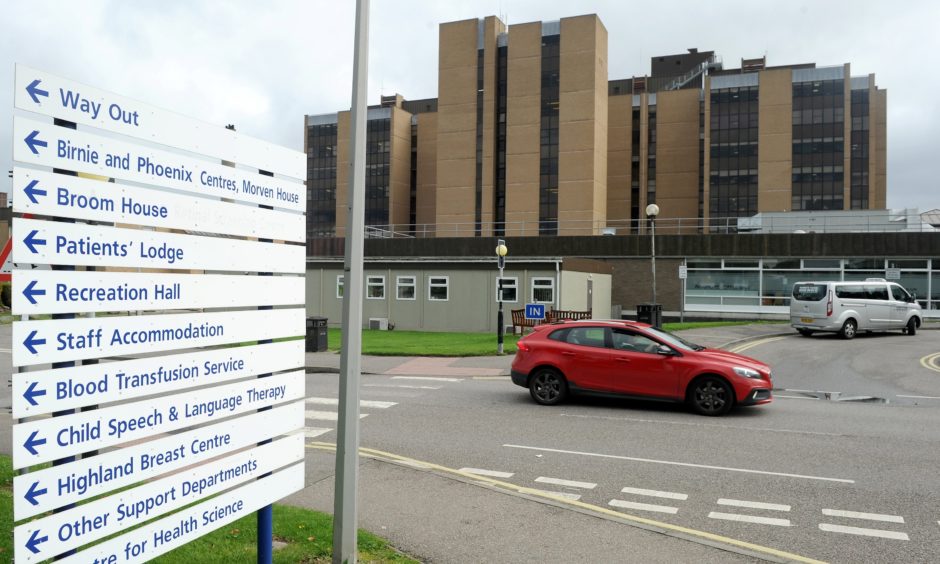NHS Grampian has apologised after it emerged ambulances transferring emergency patients are being forced to wait outside hospitals for hours.
Health staff across the north-east have been struggling to cope with rising Covid-19 cases in recent weeks with more than 100 operations cancelled due to the pressure.
Now the strengthened infection control measures are causing a backlog of ambulances waiting to drop off patients.
Last night concerns were raised the delays could increase existing issues with paramedics from Moray and other rural areas being held up in the Granite City – leaving some communities adrift without any nearby cover.
It is understood some had to wait three hours outside Aberdeen Royal Infirmary at the weekend due to a lack of beds.
Extra ambulances have been deployed across the north-east to ensure emergency calls are still being answered while paramedics wait outside A&E.
Meanwhile, NHS Grampian has prioritised work to discharge patients to free up beds at ARI to keep waits to a minimum.
Yesterday Moray MSP Richard Lochhead said he would be contacting the NHS to ensure rural ambulances are not being unnecessarily delayed in the city.
He said: “There is no doubt the NHS is coming under increasing pressure as we move through winter and against a backdrop of a global pandemic.
“Suggestions that ambulances are waiting to transfer patients is clearly a result of these and I will be asking the NHS to ensure all our ambulances from Moray, or elsewhere, are not delayed out of area.
“However, this is a very powerful reminder of how easily our NHS can be quickly overwhelmed by Covid on top of other pressures if we don’t all follow advice to keep ourselves and others safe.”
Infection control measures introduced by NHS Grampian have resulted in the capacity in A&E and other wards being reduced.
Meanwhile, steps to ensure social distancing have resulted in fewer beds being available for patients – with Dr Gray’s in Elgin reporting a 17% drop in available spaces.
Last night NHS Grampian explained it had launched initiatives to allow people to be transferred earlier from ambulances to reduce delays.
A spokesman said: “As a result of the combining pressures from both Covid-19 and winter, we have experienced an increase in the number of ambulances having to wait to transfer patients from an ambulance into the emergency department (ED). This situation is regrettable and we apologise for this.
“To address these delays we are expediting flow improvement work within Aberdeen Royal Infirmary and working with our health and social care partners to improve discharge and transfer out of the hospital as part of our ‘home first’ focus to increase daily bed capacity.
“We also recently launched the Pick Me Up project to encourage people to collect their loved ones, who are ready for discharge, during the working day to free up more bed space in the hospital for those who are acutely ill.
“These initiatives will result in greater access to in-patient beds for those in ED which will assist in allowing patients to transfer earlier from ambulances, avoiding the current delays.
“We would encourage members of the public to continue to play their part in taking pressure off of our frontline workers by sticking to the latest Covid-19 guidelines.”
NHS Highland has reported it had no issues at the weekend but warned its services were also struggling to cope with increasing pressure.
A spokeswoman said: “Similar to other areas we have experienced high demand for hospital services recently which has resulted in reduced capacity.
“To help us manage this, our clinical colleagues look at our elective workload to see what can be postponed as well as working with our community colleagues to use the capacity that they have available.
“We also make full use of ambulatory emergency care to allow us to treat patients without the need for admission.”
An ambulance service spokeswoman said: “We are working closely with NHS Grampian and NHS Highland to admit patients safely to hospital.
“A number of steps are being taken to minimise ambulance waiting times at hospitals including jointly agreed escalation plans and daily communication between the Scottish Ambulance Service and hospital teams. Additional ambulance resources are also being deployed over the winter period.”



